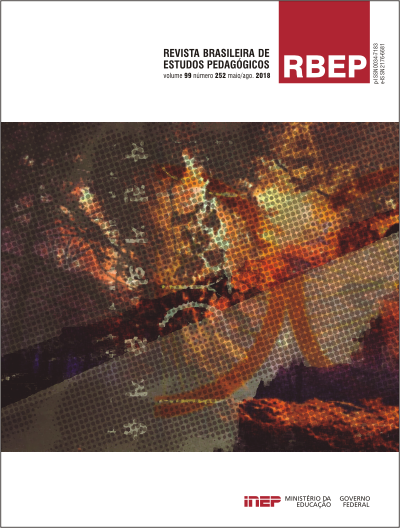An approach to gender inequalities and sexual diversity in teacher’s labor unions: the case of the Brazilian National Confederation of Teachers (Confederação Nacional dos Trabalhadores em Educação CNTE)
Abstract
Studies on sexual diversity and gender in teacher´s labor unions are still incipient, and the existing ones focus mainly on the women’s involvement in labor unions, without discussing the institutions’ views on the issue. Some examinations assign reasons for such gaps: since unions are “public” institutions, they are there for male participation, or they revolve around the so-called common fights; thus, making the initiatives related to gender policies incidental and even hazardous. However, in the last two decades, the conversation has advanced, enabling the emergence of union policies more aware of issues concerning gender and sexuality, which gradually incorporates the fact that gender and sexual orientation distinctions are components in the processes of distribution of power and social inequality. Aiming to clarify the subject, this paper examines the attributions and responsibilities of the departments devoted to gender and sexual diversity issues in 25 unions affiliated to the Brazilian National Confederation of Teachers (Confederação Nacional dos Trabalhadores em Educação – CNTE), identifying whether they are headed by men or women. Data were collected through a query on the statutes of the organizations and the list of their board of directors, obtained from their webpages, or requested via telephone or e-mail. In short, it was observed an overwhelmingly larger presence of women in the coordination of these departments, which have assorted attributions, competencies and classifications; it was also verified a very small number of references to sexual diversity issues. This could indicate, on the one hand, a still existing representation of the supposed competencies of men and women, with the assignment of positions understood as politically understated to the last ones. On the other hand, it denotes still early-staged debates on the issue, since there seems to be a better acceptance of the institutionalization of matters related to gender and women, when compared to the debates on sexual diversity; which indicates a new cleavage and invisibility and/ or disregard for the distinctions related to sexual orientation and gender identity.
Downloads
Once their work is accepted for publication, author’s copyrights are automatically relinquished to the National Institute for Educational Studies and Research Anísio Teixeira (Inep).
Since 2016, the journal Revista Brasileira de Estudos Pedagógicos (RBEP) uses the licence CC-BY.
Partial or total reproduction of the content of this Journal is permitted provided that the original publication is properly referenced, as well as a link to license CC BY 4.0 and to indicate any possible alterations made to the article.




















